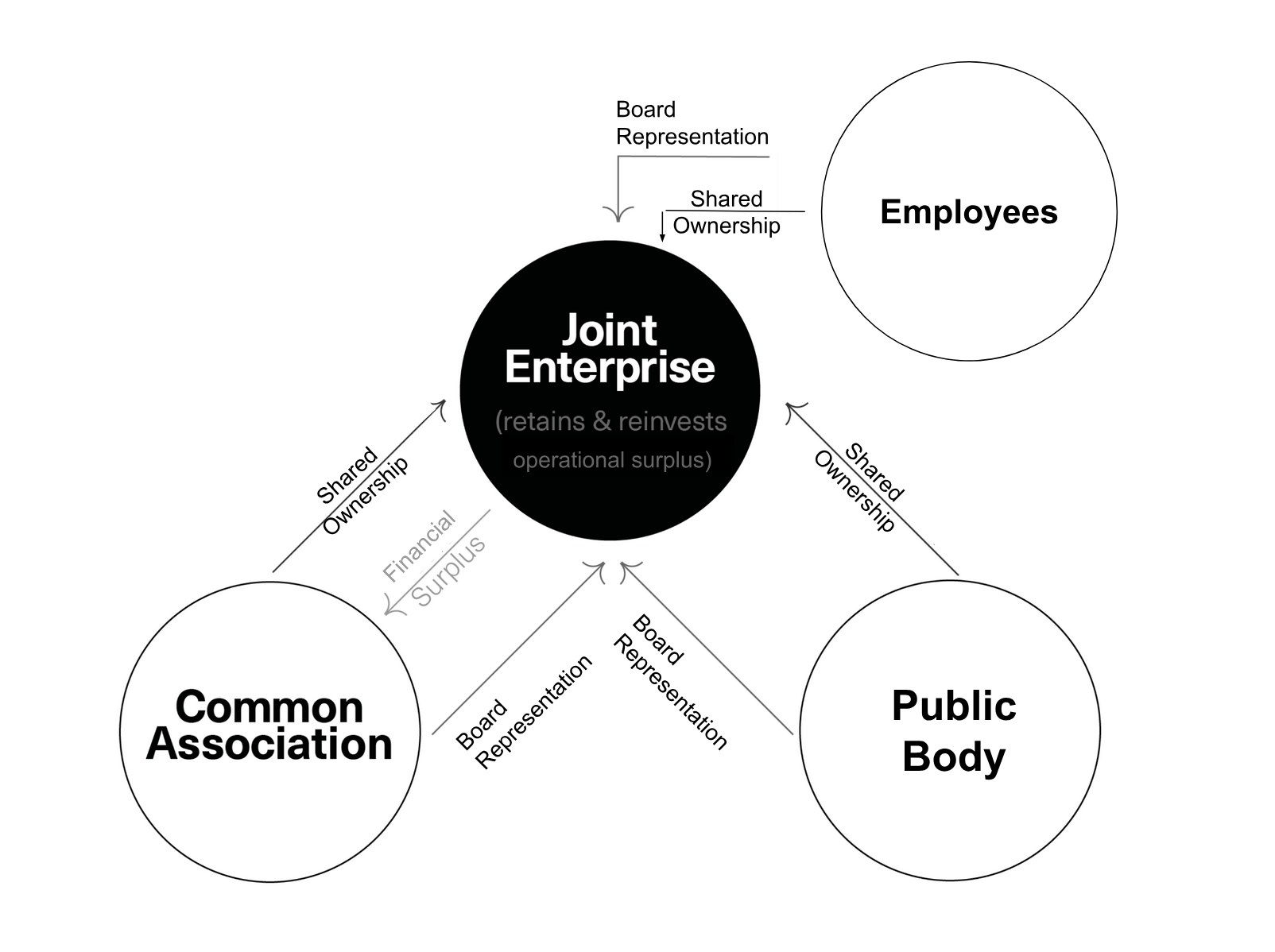What is a Public-Common Partnership?
A public-common partnership (PCP) is a way of democratically controlling production, assets, and resources so that the wealth they create is shared by everyone, instead of being captured by private owners or the state.
Here’s how it works. In a typical company, the surplus created by workers is appropriated by private owners and shareholders. Key decisions about how the company operates, especially financial decisions, are made by managers acting on behalf of the owners. In a cooperative, workers share the surplus among themselves, but not with workers beyond the coop.
A PCP takes things further. Instead of keeping the surplus inside the workplace, it passes some of it on to a Common Association – a local, democratic group made up of community members. This association then decides how to use the surplus, with the aim of supporting the development of further PCPs or comparable forms of social property.
The idea recognises that work, and the surpluses generated through it, is never done by employees alone. It depends on a whole network of people and systems — from carers raising children, to neighbours maintaining community life, to public roads, schools, and health services. PCPs direct resources back into this wider network, so that everyone who contributes to creating social wealth can share in its benefits.
A PCP is built around a Joint Enterprise co-owned and co-governed by three groups:
2. A Public Body, such as a city council or agency, which provides resources and support.
3. The Common Association, made up of local residents who decide how profits are reinvested.

Together, these groups share power on the governing board. This creates a space where different interests meet and instead of one group dominating, they negotiate.
PCPs protect the underlying resources from being sold off or privatised. All land, buildings, and equipment are placed under an asset lock. This means they can’t be stripped or sold for private gain. The business keeps enough surplus to develop its operations but the rest goes to the Common Association, which allocates it democratically.
This model is different from charities, community land trusts, and community consultation exercises. Its uniqueness lies in combining worker control, community decision-making, and public support into one institution. The goal isn’t just to make workplaces fairer, but to steadily grow the commons — the shared wealth and resources that belong to all of us.
Over time, PCPs can generate a powerful ripple effect. Surpluses can be used to create new partnerships, which in turn support others. This builds a network of workplaces and communities that meet needs collectively — from food and housing to energy and culture. The more these networks expand, the less dependent people become on private corporations or volatile markets, and the greater the potential for these institutions to support a wider social-ecological transition.
Ultimately, public-common partnerships are about turning assets, resources and workplaces into engines of social ownership and control. They are institutions that put resources in common hands, reinvest in social life, and open the door to a future where abundance is measured not by private profit, but by shared wellbeing.
To read about PCPs in more depth, check out our in-depth reports.
